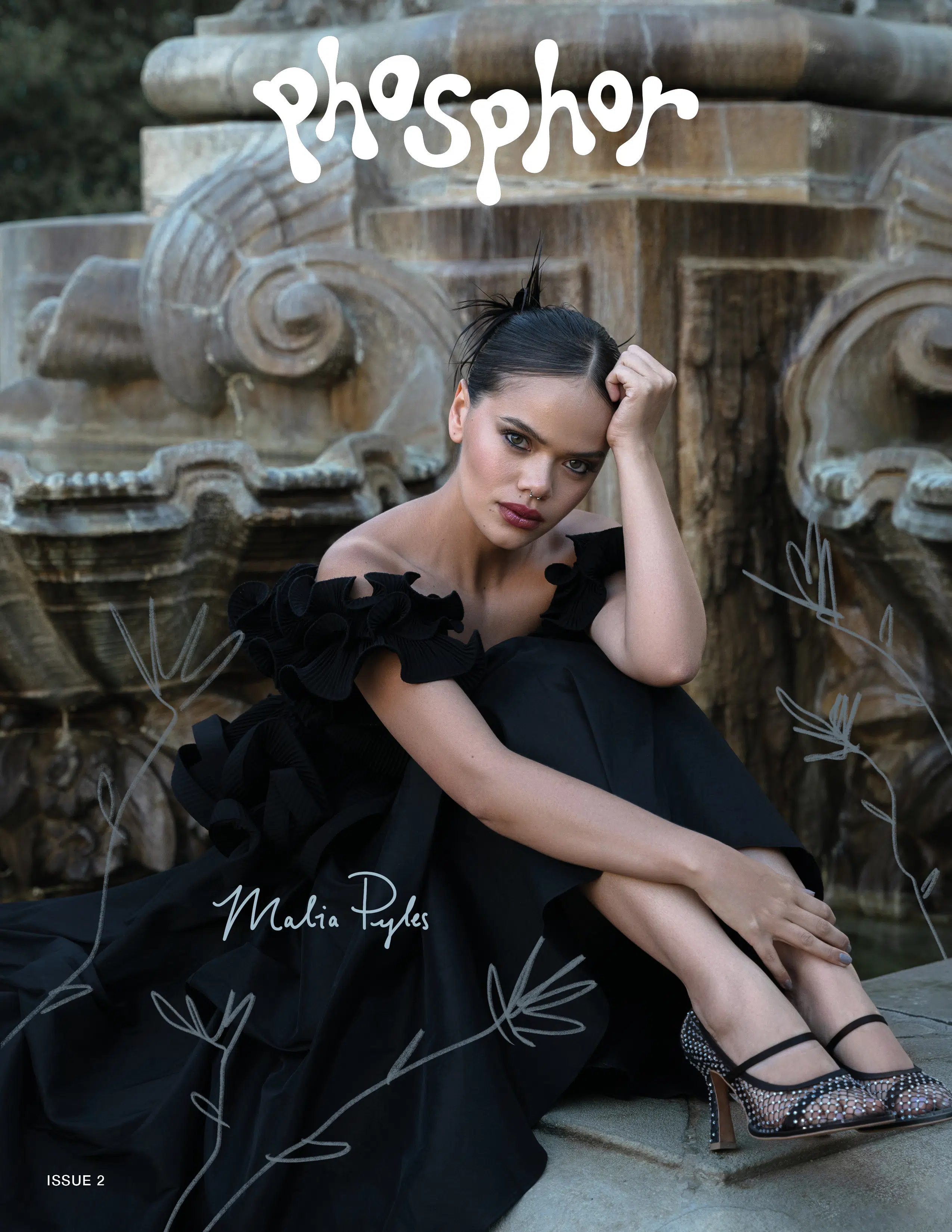
Malia Pyles on stepping into her own power
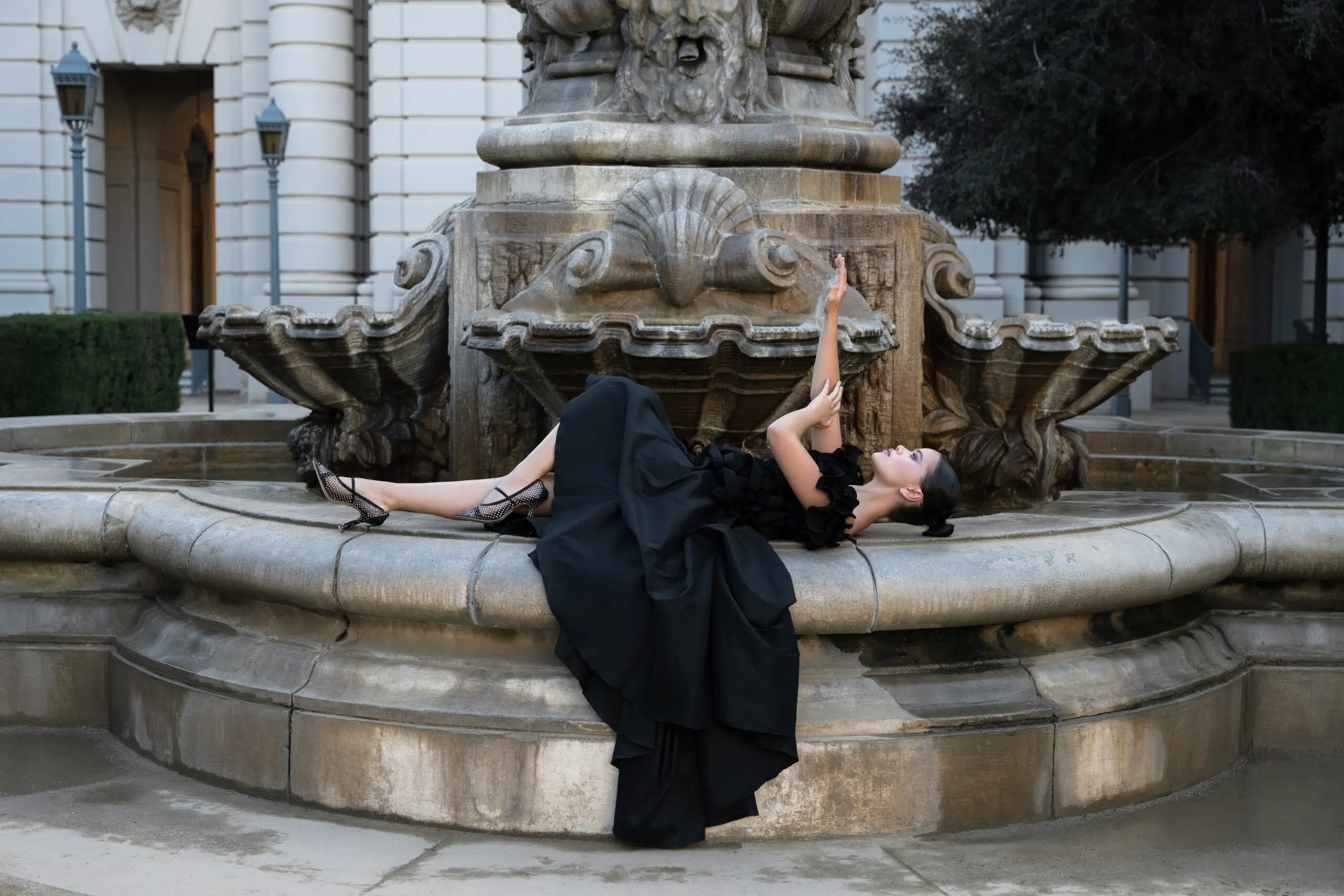
Actress Malia Pyles, who plays Mouse Honrada on Max’s Pretty Little Liars: Summer School, opens up about her journey in the film industry, the importance of representation, and her artistic pursuits. From early influences to current projects, Pyles shares her thoughts on the evolving landscape of media and the significance of diverse storytelling.
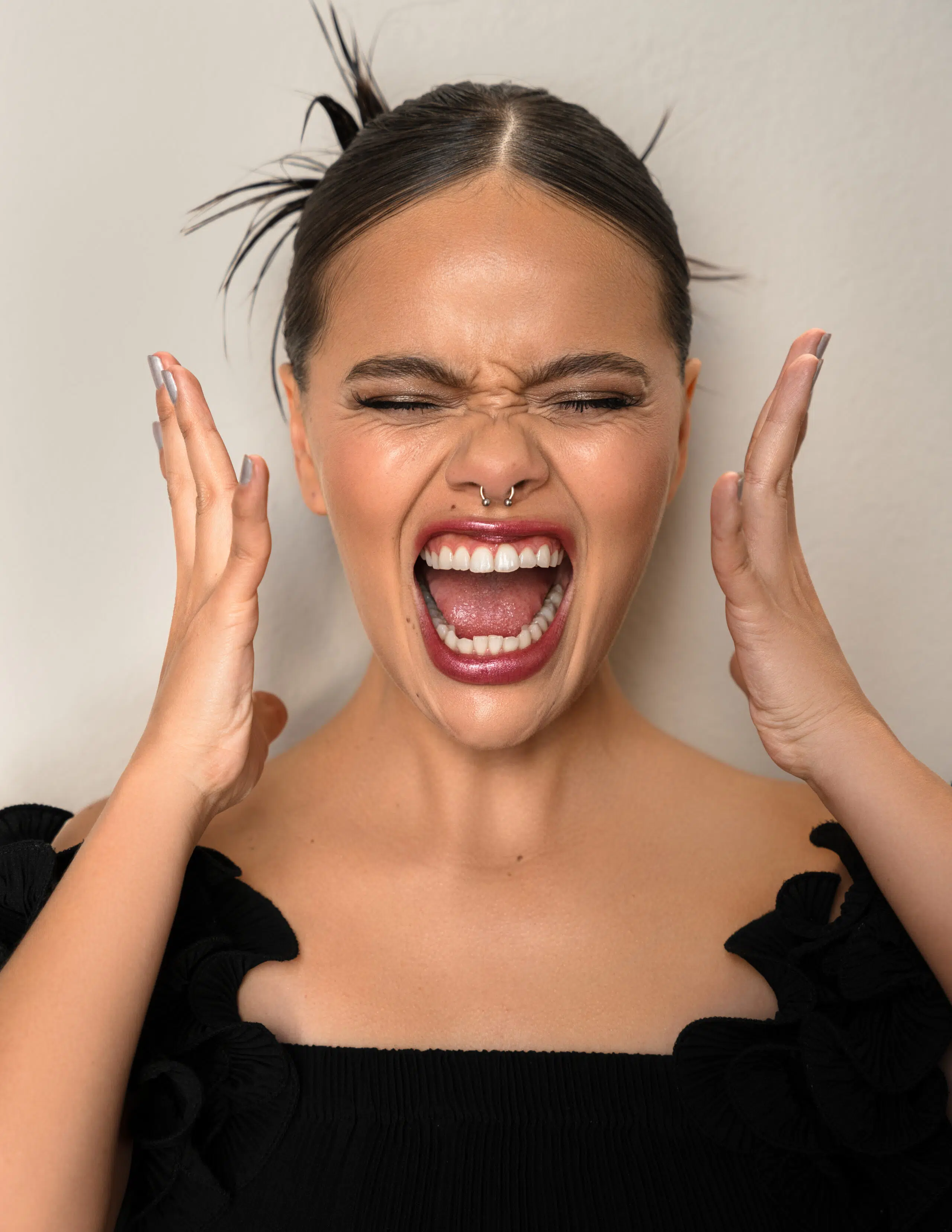
With a killer ‘final girl scream’ in her repertoire and nearly insatiable curiosity, Malia Pyles is ready to make her mark on the industry. She currently stars as analytical and tech-obsessed Minnie ‘Mouse’ Honrada in Max’s Pretty Little Liars: Summer School, taking on dark forces in the small town of Millwood, Pennsylvania.
Acting was her “first true love,” despite an adolescence she describes as “colored by nos.” While her journey was not linear, her determination was evident even at a young age. “I started wanting to do it and chasing that dream when I was nine, and I am very proud of the fact that I never gave up on that dream.”
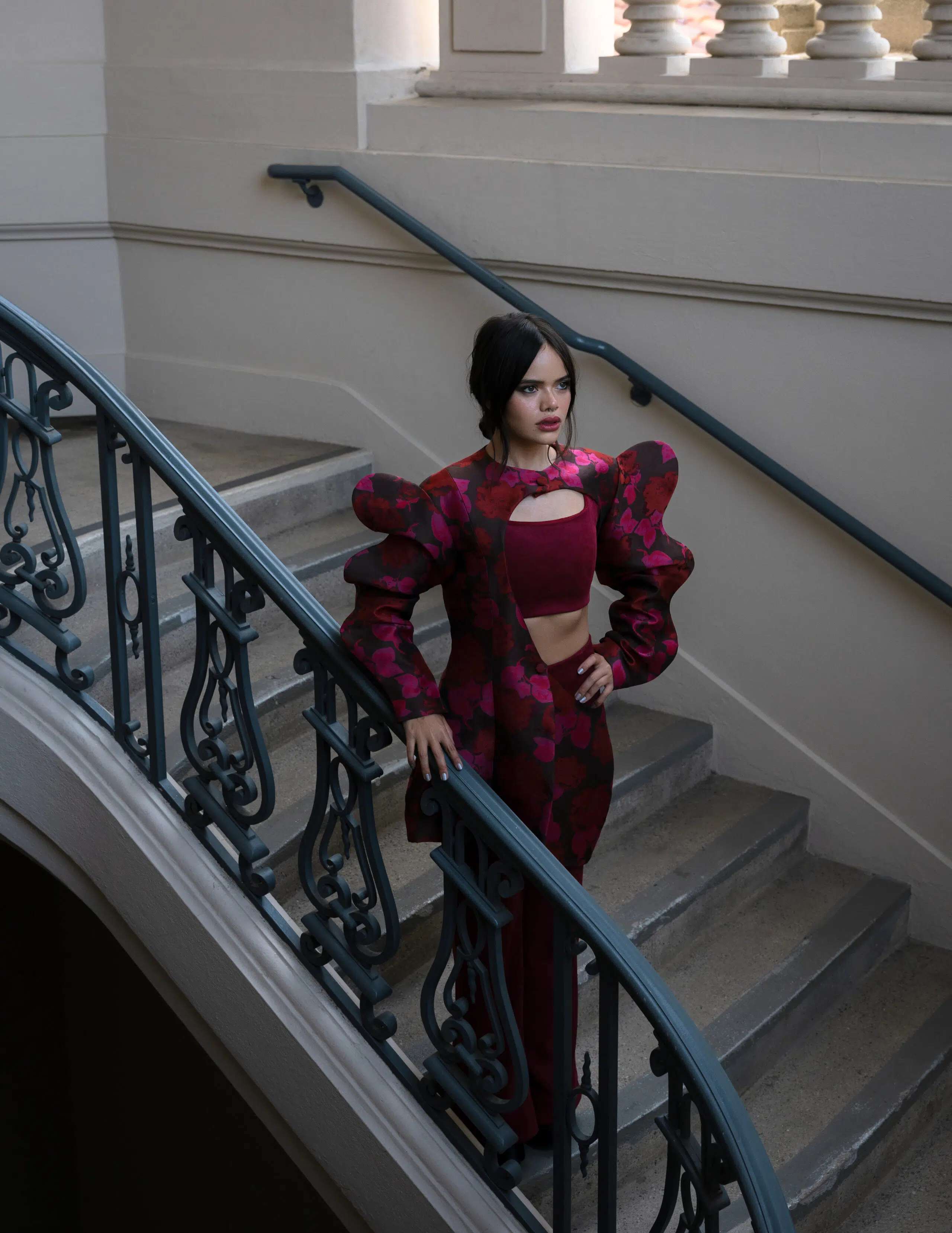
Full look NERVI.
Pyles has always had a knack for “playing pretend,” from playing mermaids in the pool while growing up in Southern California to starring as Mouse Honrada on Pretty Little Liars in her early twenties. “When I think about the genesis of who I am, I stepped into knowing that I wanted to do this so strongly,” she reveals. “It’s hard to pinpoint why or when that happened.”
Encouraged by her “incredibly supportive” parents, Pyles found her passion in acting after dabbling in various extracurriculars, including dance, gymnastics, ballet, and classical piano. “Acting was the first thing that really stuck out to me and stuck in a real way. It’s the hardest thing I’ve ever done. There were so many sacrifices that had to be made in constant pursuit.”
The journey was far from easy, marked by countless hours on the 405 driving to auditions and callbacks in her family’s overheated Volkswagen. “My mom is an immigrant, and my dad didn’t come from abundance,” she explains. “They wanted me to live a life where I didn’t have to worry about my next paycheck. There was a lot of fear there, but they supported me with so much ferocity because they knew the industry wouldn’t.”
Working on the indie film Memoria at 13 was an evocative and “incredibly formative” experience for Pyles. “For the audition, we did a scene where we had to improv some of the dialogue,” she recalls. “I couldn’t shoehorn myself into what I thought was right. I had to trust myself and trust my imagination.” She credits the film, which she describes as a “coming-of-age story with undertones of a Harmony Korine film,” with expanding her “artistic language” and her understanding of “what art could be.”
As she continued through her teenage years, she began to realize what art could be beyond the realm of supposed roles for young women at the time. “When I was 14, I was watching movies like Girl, Interrupted and The Virgin Suicides. I was watching Angelina Jolie, Brittany Murphy, Kirsten Dunst, and all of these incredibly strong, powerful actresses play roles that I feel only men would be gifted,” Pyles says. It was eye-opening for her to watch these now established actresses break the mold through these “complex and messy” roles.
Her parents’ unwavering support allowed Pyles to explore her creativity and develop an appreciation for the artistic process early on. “Nurturing that craft as a kid gave me a deep sense of empathy for humanity and a deep curiosity about human nature. It’s one of the things I cherish the most about myself.”
Pyles recalls a valuable lesson about navigating the industry from her acting teacher, Gregory Berger. “To be an actor, you need to have the skin of a rhinoceros and the insides of warm jelly.” Maintaining a sense of self without becoming jaded has been a constant challenge for Pyles. “The industry and the system will be the first to not believe in you. You’re forced to believe in yourself in a real way and choose yourself every day,” she says.
Her first television role in FX’s Baskets came at a pivotal moment. “I was 15, and I was about to start my sophomore year at a new school. I wasn’t seeing a lot of results, and I felt like I was at the end of my rope. I was at a point where I was thinking about taking a break and starting again when I was 18,” Pyles shares. Working alongside comedy greats like Zach Galifianakis, Jonathan Krisel, and the late Louie Anderson expanded her understanding of artistic freedom and experimentation in character work. “They had such a generosity to their spirit,” she recalls. “In between takes, Zack and Louie would share life lessons that kept me incredibly grounded in myself and the space I was walking into.”
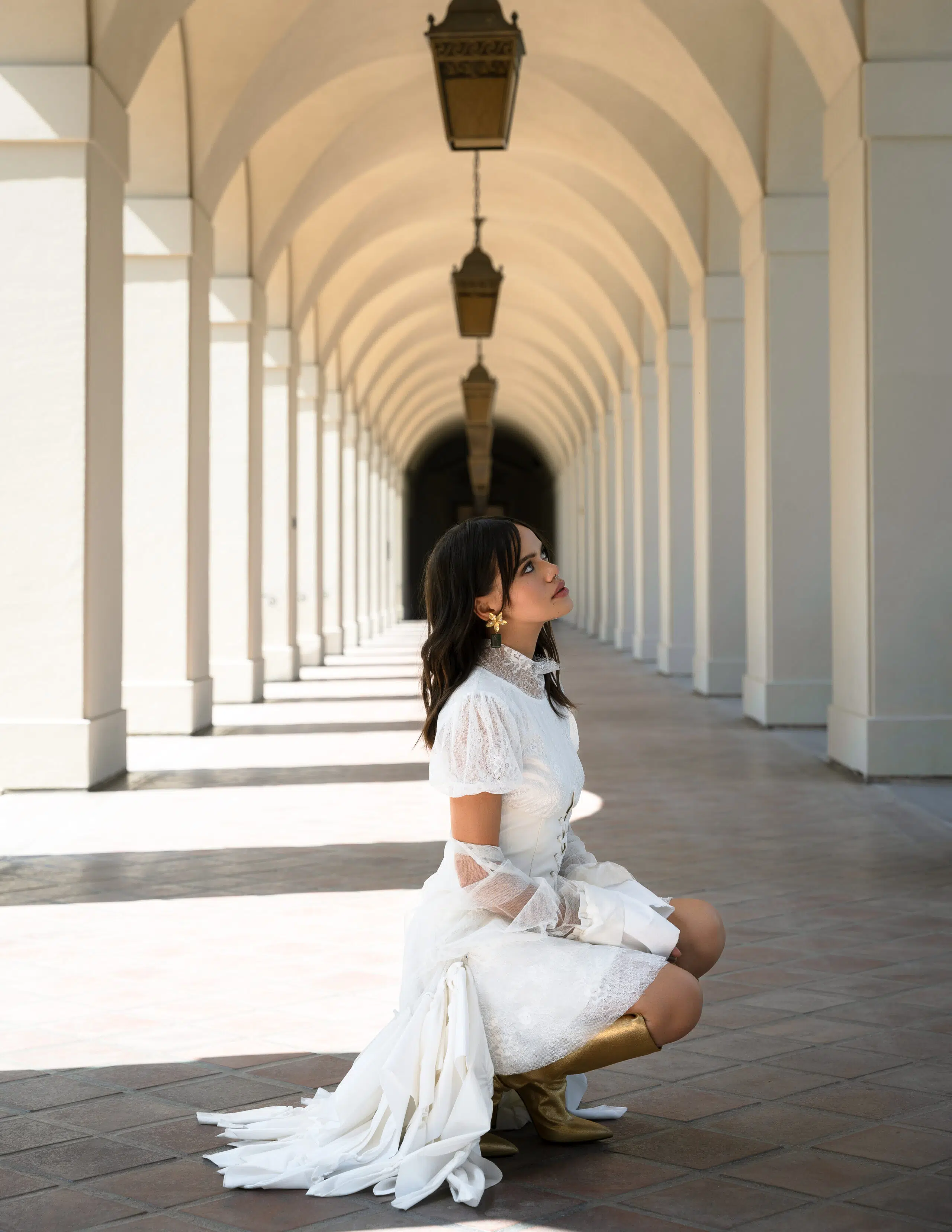
Dress SERPENTI, jacket KIM PERETS, earrings ADIBA, shoes COLLINI.
Although representation in the film industry has evolved significantly, Pyles has witnessed these changes firsthand. “It’s actually wild to think about the last ten years and how much has shifted. Sometimes, people can fault diversity in the media because it feels forced, but I’m like, ‘Oh my god! We are just starting!’ We are just starting to scratch the surface of telling stories that aren’t white and hetero and what media has traditionally represented,” she says, emphasizing the importance of diverse storytelling. “It’s been such a blessing to be a part of telling these stories, and to have grown up in a time where I can see how different it used to be. I think there’s a level of care and responsibility that needs to be there on my end when it comes to approaching this work.”
Pyles fiercely champions the need for more Filipino representation in the media. “We’ve had a lot of Filipino actors on screen, but I’ve never seen a film or show where Filipino culture was part of the narrative as well. I feel like Filipinos have always had to be very stealthy and fit into cultures and identities that weren’t their own,” she notes. “The first film where I ever saw accurate Filipina representation was Yellow Rose.” Yellow Rose, which explores themes of Filipino resilience and identity, was a trailblazing narrative that highlighted stories often overlooked in mainstream media. “I was bawling crying. I felt so seen in so many ways.”
The million dollar question, Pyles says, is if the industry will continue to trust writers to tell these stories. “There’s a huge amount of work that we still need to do. It starts with employing diverse writers,” she comments. “I really urge the industry to trust people with different lived experiences to tell stories. I want to see more queer writers. I want to see more trans writers. I want to see more people of color in the writer’s room. One person can’t represent all stories.”
“Putting money behind different stories” is crucial, but Pyles emphasizes that the industry has yet to reach that stage of development. “We need more theatrical releases with leading women and leading queer people and leading people of color. We’re only at the tip of the iceberg.” Pyles references Bottoms, the comedic brainchild of director Emma Seligman and her friends, as an example of the kind of strides she hopes to see in the industry. “There’s so much cool representation. We should all just get together and make more shit,” she encourages.
Pyles strives to explore the “plight of being an artist” through her work — in particular, examining ways to promote diversity and champion marginalized voices. “For so long — and I’m speaking as someone who has felt this way — there was so little room at the table that people within different minority spaces would think, ‘There can only be one chosen person, so we aren’t going to help each other out.’ There needs to be more support across the board.”
Pyles hopes to empower those in her community to continue telling diverse stories. “There’s so much art being created, and I want to use the knowledge and experience and resources I have in my corner to help these projects get off the ground. We should all be better at sharing our resources with each other.”
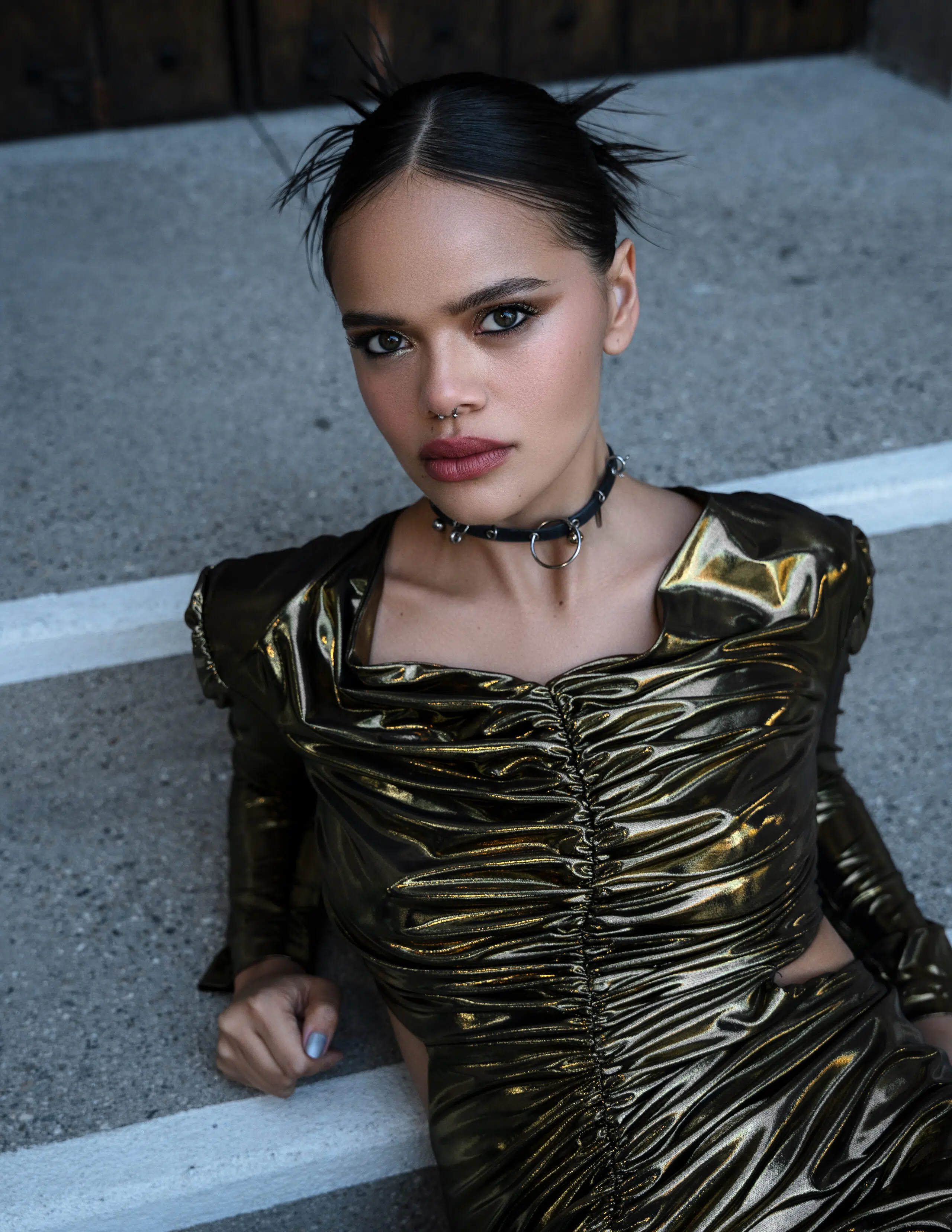
Dress COLLINI, necklace JUSTINE CLENQUET.
Pyles praises the team at PLL for their intentional storytelling — authentically portraying the diverse narratives of the five young women on screen. “I am so grateful for PLL specifically, because they do such a great job at being inclusive. The first step is trusting different people from different walks of life to come together and tell a story,” she says, touching upon how much of a blessing it has been to say “my Lola” on screen.
Production on season two was filled with new experiences and questions for Pyles. “How am I going to introduce this new character and this new villain? Do I have the chops to do that?” With the support of the cast and crew, Pyles embraced the challenge of bringing undiscovered facets of Mouse’s character to life. “There’s a certain strength to Mouse this year that wasn’t there in season one,” Pyles says. “Not that she wasn’t strong, but she had to be more outward about her strength.”
Pyles describes a poignant scene between Mouse and her grandmother Lola (Loretta Ables Sayre) that transformed her perspective as an actress, even though it didn’t make it into the final cut. With Bloody Rose continuing to threaten the people she loves, Mouse “teeters the line of being a loving granddaughter and being on the verge of a psychotic break” as she cares for her grandmother in her deteriorating mental state.
“It was a beautifully complicated scene to play, and Loretta, who plays Lola, was so giving. It was so nice to have that quiet moment with her and Mouse,” Pyles shares. “Even though it doesn’t get to live on screen, I learned so much about Mouse’s vulnerability. Even though you don’t get to see them, those scenes still live in the narrative. You don’t get to see every second of your best friend’s day, but those moments still happen.”
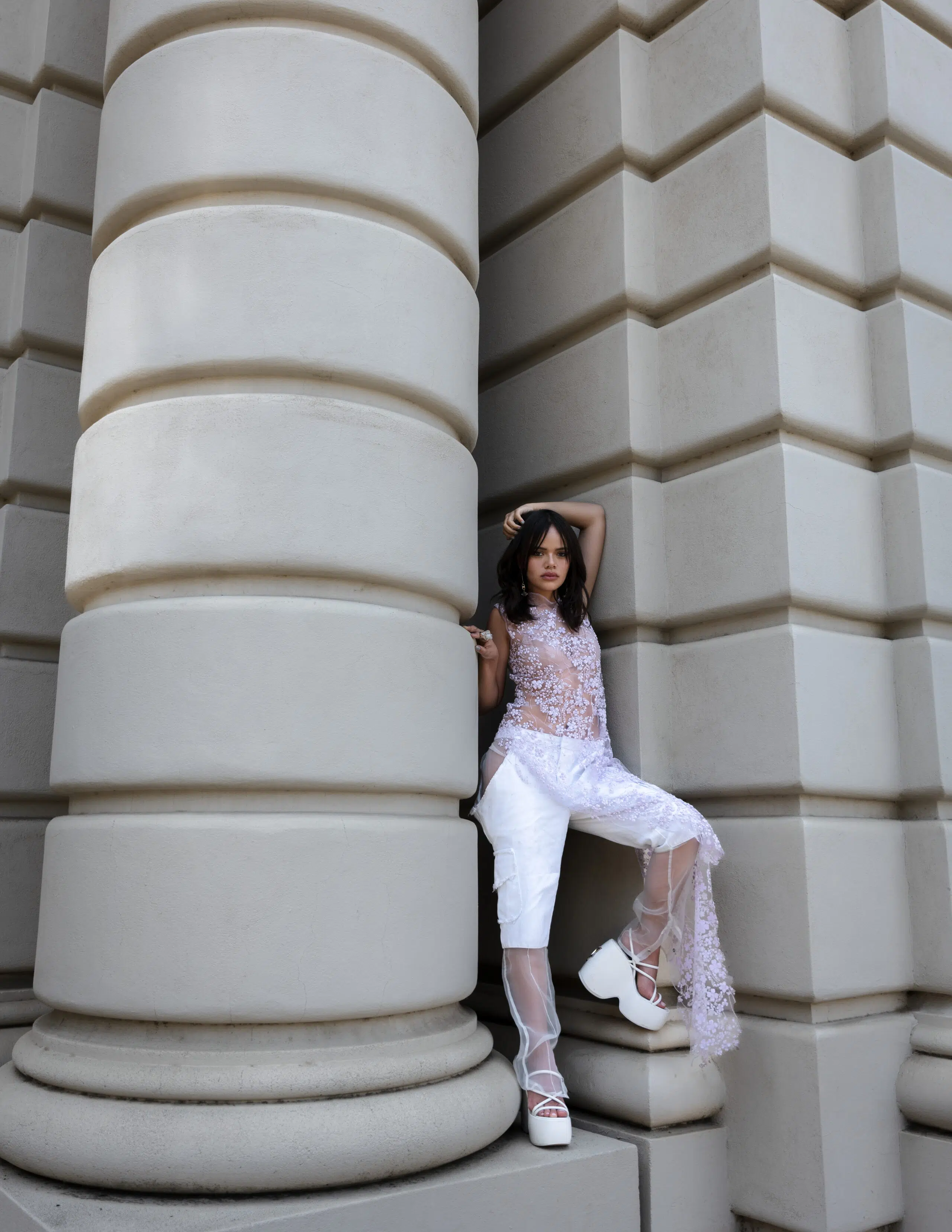
Top LETHICIA BRONSTEIN, jacket KAROLINA’S KINGDOM SPAIN, pants ABEL HONOR, shoes NAKED WOLF.
Over time, Pyles has come to embrace art for art’s sake. “Having creative endeavors that aren’t for monetary gain is so important to me because it keeps my creative soul flourishing,” she explains. Whether it’s piano, drawing or making music, Pyles takes full pride in her “half-baked” creations.
“I started playing piano as a kid, but I stopped when I was eight. And then the pandemic happened, and we were all locked in our houses, and I started playing again. I was going through a really tumultuous time in my life. I started writing diary entries, almost — they weren’t quite songs, but I would put them to music, and I would sing them over and over and over again. I would explore the inner workings of myself through music. I have hundreds and hundreds of pages of songs. In pursuit of myself and taking myself more seriously, I wanted to create something that felt more tangible.”
As the lines between passion and profession blur together, Pyles admits that her motivation can become limited — especially in the years since she’s started pursuing acting more seriously. “At a certain point, it became a means to a financial end, because I have to survive and keep afloat and pay rent. I’m still figuring out how to make my art feel like my art when it is also my survival.”
Despite these challenges, she bets on herself and takes ownership over her work in an industry that is quick to doubt. “It’s been so scary getting ‘no’s’ my entire life. My journey right now is taking myself seriously and taking my art seriously.”
Drawing from her own experiences, Pyles offers advice to creatives feeling challenged by the prospect of making it in the industry. “Don’t minimize yourself to fit what other people perceive as right. At the end of the day — as an artist, as an actor, and as a human — what will move you forward is continuing to nurture what makes you special and what makes you human. Continue to trust yourself and believe in yourself. Unfortunately, you have to be the first one to believe in yourself, because nobody else is going to. Trust yourself, bet on yourself, and bet on how wonderful and unique you are.”
“Even now, I’m continuing to push and push and push, and continuing to sharpen the tools in my toolbox. There is an incredible amount of time and labor that goes into this.” As she continues to navigate the growing success of Pretty Little Liars and beyond, Pyles’ main goals are to stay curious and trust the process. “I’m really trying to follow the advice I’ve been given — to trust myself and know that what’s meant for me will be for me.”
Photography IRENE CHEN
Fashion NORA FOLEY and ANNIE EASTON
Hair PATRICK SANTA ANA
Makeup KELLY CHRISTENSEN
Words GIULIANA BRIDA
Cover Design JUNG YOUN KIM
Layout YUJIN LEE
Copy ADELE RUDNICK and TYLER DAVIS
Retouch DARIA MOZRR
Special thanks to WOLF KASTELER PUBLIC RELATIONS
You may also like
Anna Sitar on building her own corner of the internet
Anna Sitar opens up about how content creation has allowed her to pursue her lifelong passion for st
Charlie Bushnell on bringing legends to life
Actor Charlie Bushnell explores his breakthrough role in Disney's Percy Jackson and the Olympians, s
Jalen Thomas Brooks on telling simple stories with universal messages
Jalen Thomas Brooks, who stars in Eli Roth’s Thanksgiving, opens up about how shared experiences h

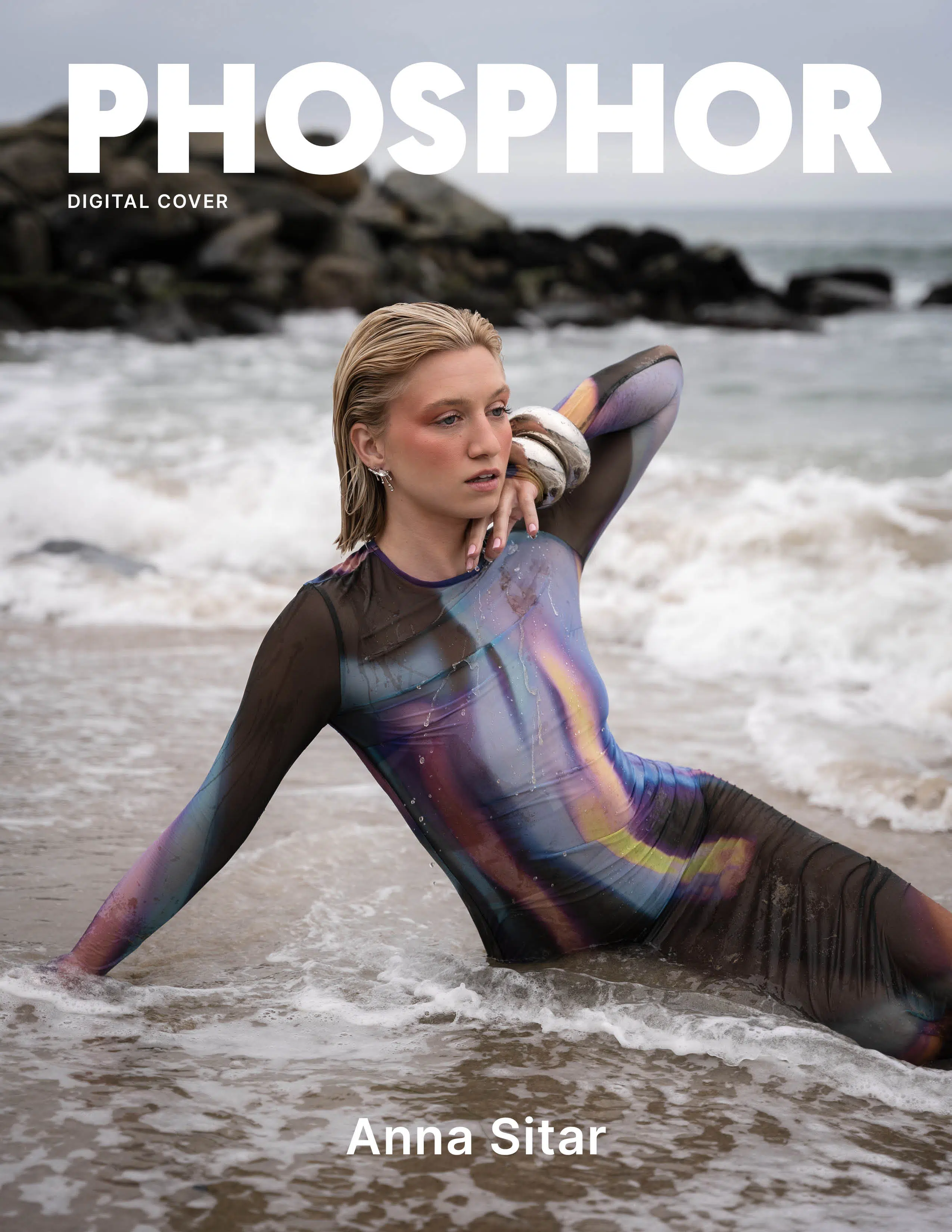
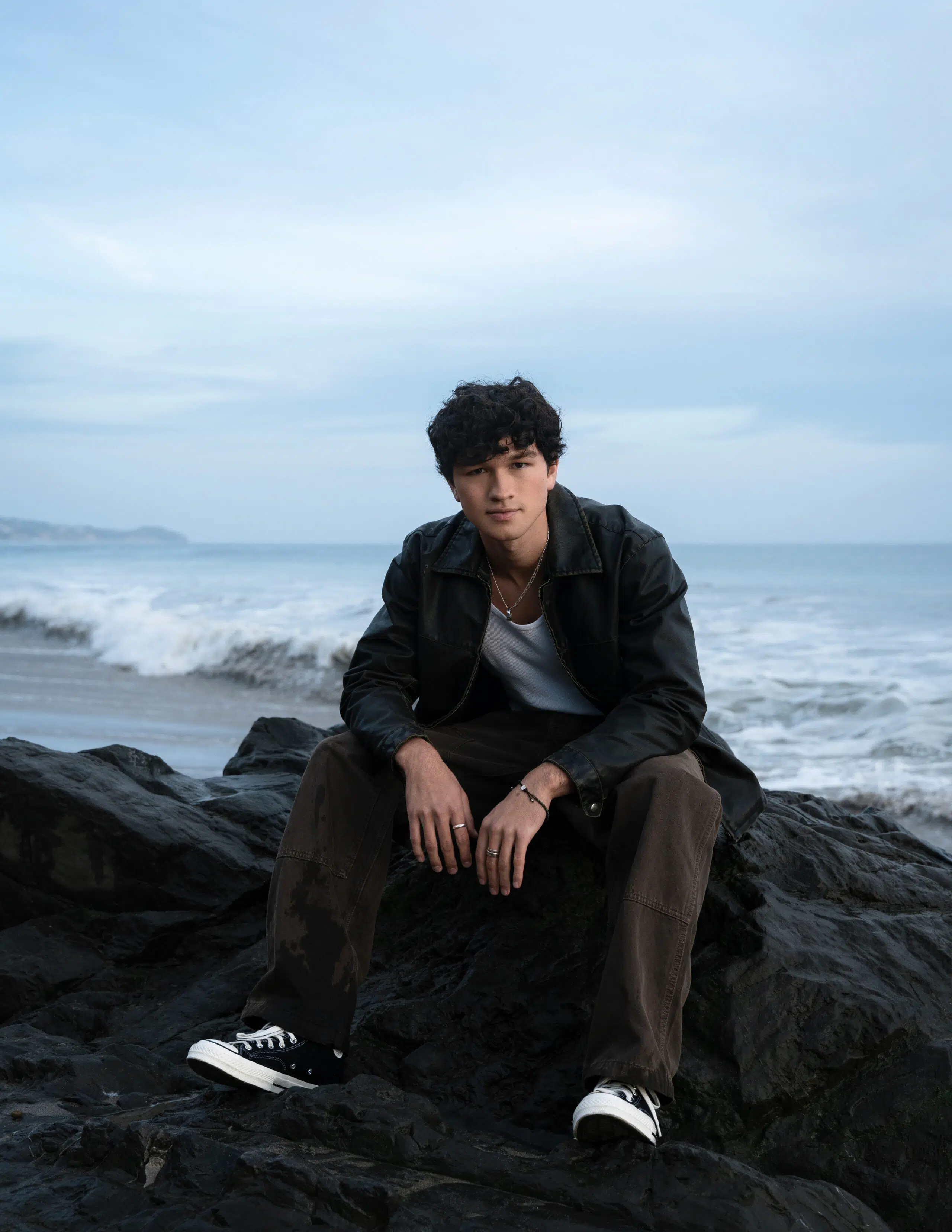
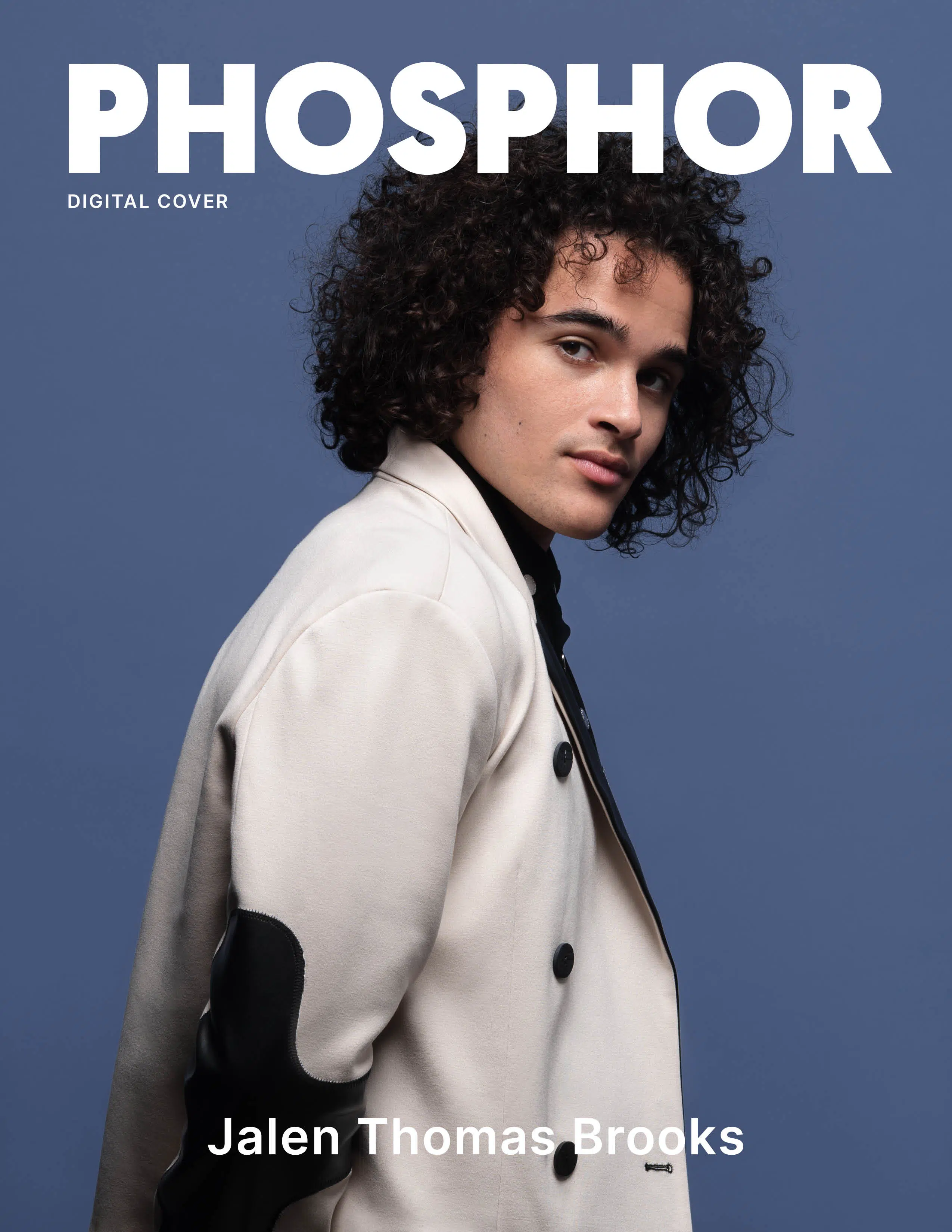



Post a comment